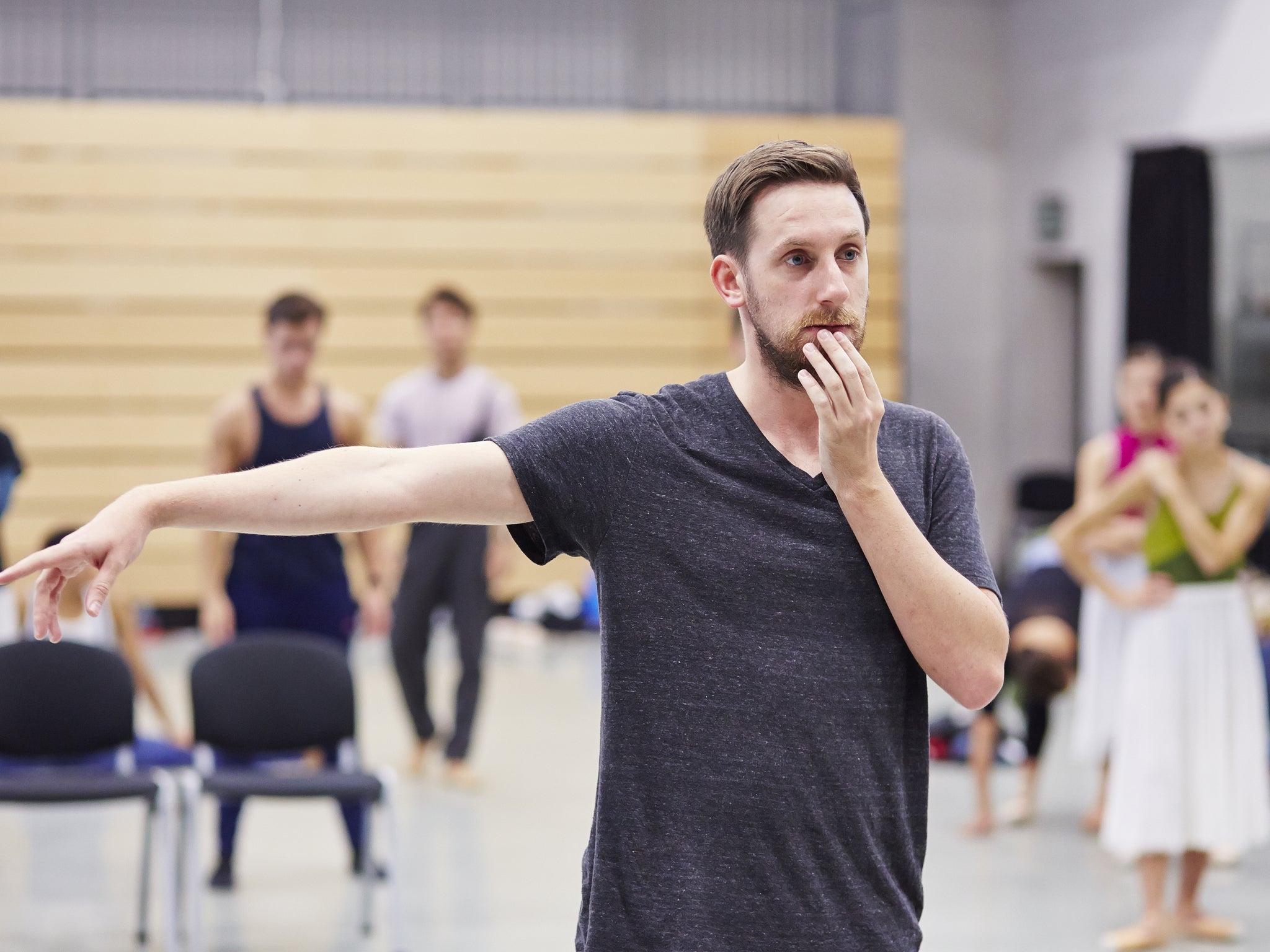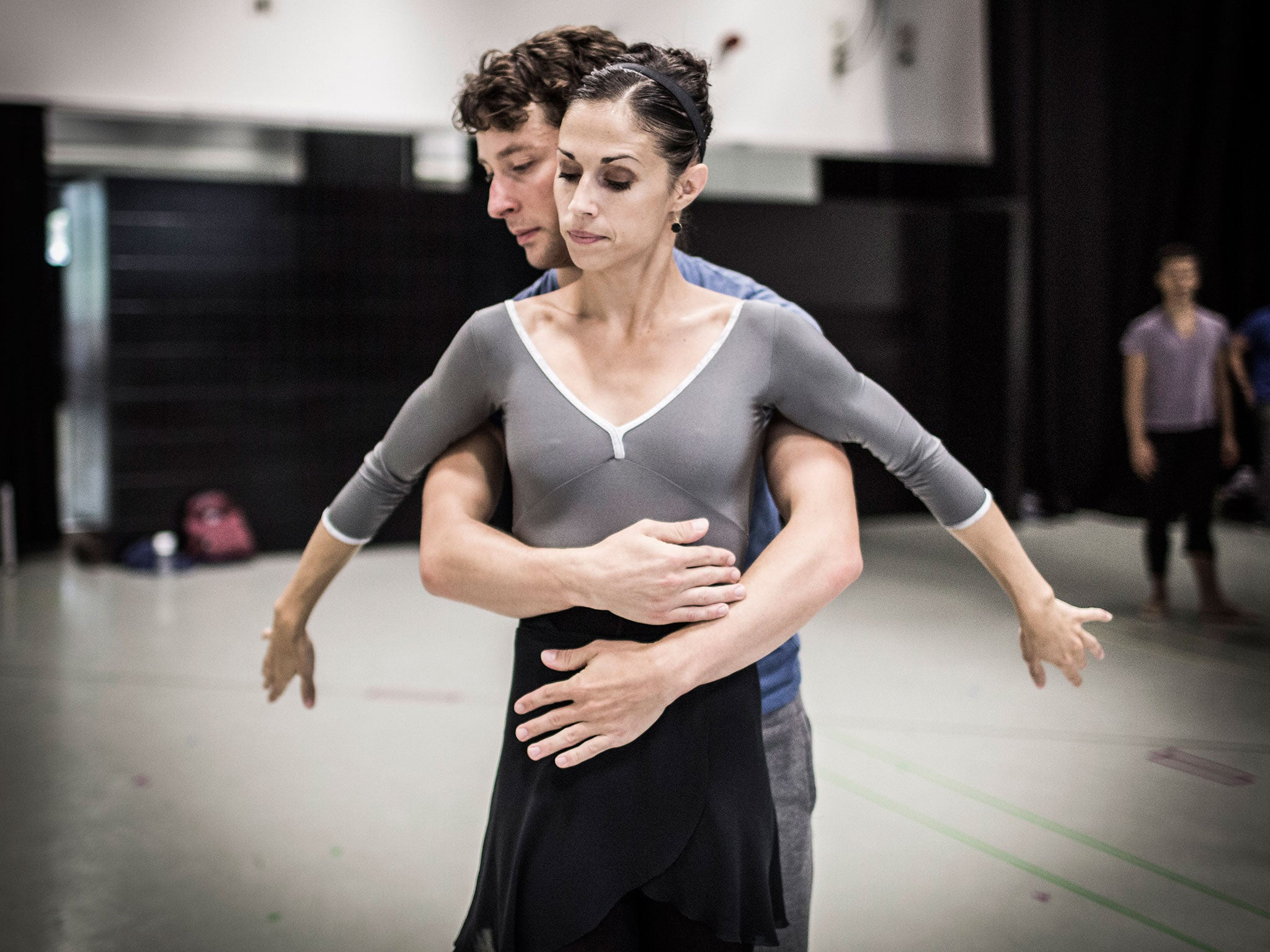1984: Ballet based on George Orwell's dystopian nightmare is not 'too dark' for the theatre
A pas de deux in doublethink

Your support helps us to tell the story
From reproductive rights to climate change to Big Tech, The Independent is on the ground when the story is developing. Whether it's investigating the financials of Elon Musk's pro-Trump PAC or producing our latest documentary, 'The A Word', which shines a light on the American women fighting for reproductive rights, we know how important it is to parse out the facts from the messaging.
At such a critical moment in US history, we need reporters on the ground. Your donation allows us to keep sending journalists to speak to both sides of the story.
The Independent is trusted by Americans across the entire political spectrum. And unlike many other quality news outlets, we choose not to lock Americans out of our reporting and analysis with paywalls. We believe quality journalism should be available to everyone, paid for by those who can afford it.
Your support makes all the difference.If you go to a ballet that tells a story, chances are that you will see a fairy tale, a pastoral idyll, or one of an apparently endless stream of different Alice in Wonderlands. Dance does offer meatier dramas – Romeo and Juliet, Manon or Mayerling, for instance – but there is undoubtedly room for more, and especially for work that tackles gritty contemporary classics.
At Northern Ballet a quiet revolution has been taking place in the past decade or so as the company – now 45 years old – has created a fount of new narrative works, most choreographed by its artistic director, David Nixon. Among these are Wuthering Heights, Cleopatra and The Great Gatsby. But next comes a very different production: a new adaptation by the choreographer Jonathan Watkins of George Orwell’s novel 1984.
It portrays, famously, a dystopian society dominated by Big Brother’s surveillance, subjugating the individual mind and experiential truths to Party lines perforce. The hero, Winston, enters into a rapturous love affair with his co-worker Julia, only to find himself trapped for betraying the system; under torture his will is broken. Though the book’s concepts are household names – thoughtcrime, Big Brother, Room 101 – it might seem a tough story to express in movement alone; and more disturbing is the idea that some might consider it too dark for dance. Has the medium been primarily associated with escapism for too long?
Tobias Batley, who dances Winston, partnering Martha Leebolt as Julia, insists that 1984 is not all gloom. “Many people have voiced their worry that it’ll be a dark and depressing ballet,” he reflects, “but it depends what you take away from it. We’re focusing strongly on the central love story. When I read the book for the first time, years ago, that was the most important part for me.
“There’s something incredible about this secret love between Winston and Julia,” he adds, “but it has so much power behind it because it’s uplifted by the contrast with all the darkness outside. Of course it ends tragically – but Romeo and Juliet is also terrible at the end. The saddest thing is that Winston and Julia are at the absolute height of this love and they’re safe, and then the floor just drops out from under them. It’s heart-wrenching when you realise that they have been watched all along. It’s a very touching role to play.”
Watkins first told Batley about 1984 when they were both teenagers at the Royal Ballet School: for this young Barnsley-born choreographer, the novel has been a long-standing obsession. “I wasn’t a great reader when I was young,” Watkins says, “but I was somehow drawn to this book and I remember reading it on the train on my way back from Yorkshire to White Lodge [the Royal Ballet’s junior school in Richmond Park] of my own accord. It inspired my earlier work in a wider sense. This idea of realising it in a narrative ballet has been bubbling away and I knew I was going to be doing it sometime.”
Then came the perfect opportunity: an approach from Northern Ballet, which encountered Watkins’s dance version of Kes (based on Barry Hines’s novel A Kestrel for a Knave) when it was staged last year at the Sheffield Crucible. “I thought 1984 would be a really good fit for them because of their dancer-actor capabilities,” says Watkins. “They’re an amazing group of artists and they’re very committed to it.” For the company’s 45th birthday gala earlier this year, he also created “a much more light-hearted piece, based on some Stanley Holloway monologues – a really quirky celebration of the north.”

“I feel that narrative dance can appeal in a much more reflective, modern way, with resonance for the times in which we’re living,” Watkins says. “That’s why I wanted to use 1984. And in the book there is that mass control of groups of people by the Party, that military uniformity of a group – what better way to show that than in dance? For me there’s lots of scope in that balletic platform.” The single most difficult thing, he remarks, was deciding which elements of the book to leave out.
“I don’t understand why we can’t approach a ballet like a newly written play,” he comments. “Why can’t it be relevant to our times now? It’s great to have escapism, but it’s also great to see something that we can reflect on. As for the times we’re living in, everyone knows there’s surveillance up to the hilt, so it feels like the concepts it touches on already can relate to your life now. Life is dark.”
Watkins began his career with the Royal Ballet in London, but left two years ago for freelance pastures new. His work draws on a cocktail of influences, mingling his first-rate ballet training with the impact of film and theatre. On his website you can watch several short dance films that he made a few years ago for Channel 4, bringing the language of ballet right into the here and now. One, entitled Sofa, portrays a dance epiphany for a beer-bellied bloke during a solitary night in; another visualises the interior world of a young man listening to music while waiting for a bus.

Through his passion for spoken drama Watkins got to know the composer Alex Baranowski, who was working on a range of productions at the National Theatre, as well as writing music for films such as Hamlet, starring Maxine Peak, and the Bafta-nominated McCullin. The pair have collaborated on several projects, including Kes; for 1984 Baranowski has created a new 100-minute score.
He and Watkins worked intensively together on the scenario, he says, batting musical and dance ideas back and forth by email and in coffee shops for a good year. “Musically we were very conscious of not being big and down and dark, especially with the cells before Room 101,” says Baranowski.
“There’s a relatively long scene with the prisoners who’ve been accused of thoughtcrimes and so on, whom Winston meets. We chose to be quite minimalist, using textures of sounds and noises – rather than, for instance, relentless minor chords and big drums. We rewrote each scene about three times, trying to figure out the best way to tell the story. Sometimes Jonathan would send me a video of the movements he was working on and it’s amazing to find that when I’ve put in a little beat or a drum or a clarinet flourish, he’ll work that into the movements. It’s wonderful to work with a live orchestra and I’m using it for all it’s worth, with all its different noises and textures.”
And so a new generation of choreographers and composers like Watkins and Baranowski may now reinvent narrative dance for the 21st century, unafraid to engage with the grittiest and darkest of dramas. Bring it on.
‘1984’ opens at the West Yorkshire Playhouse on 5 September, then tours (northernballet.com)
Join our commenting forum
Join thought-provoking conversations, follow other Independent readers and see their replies
Comments